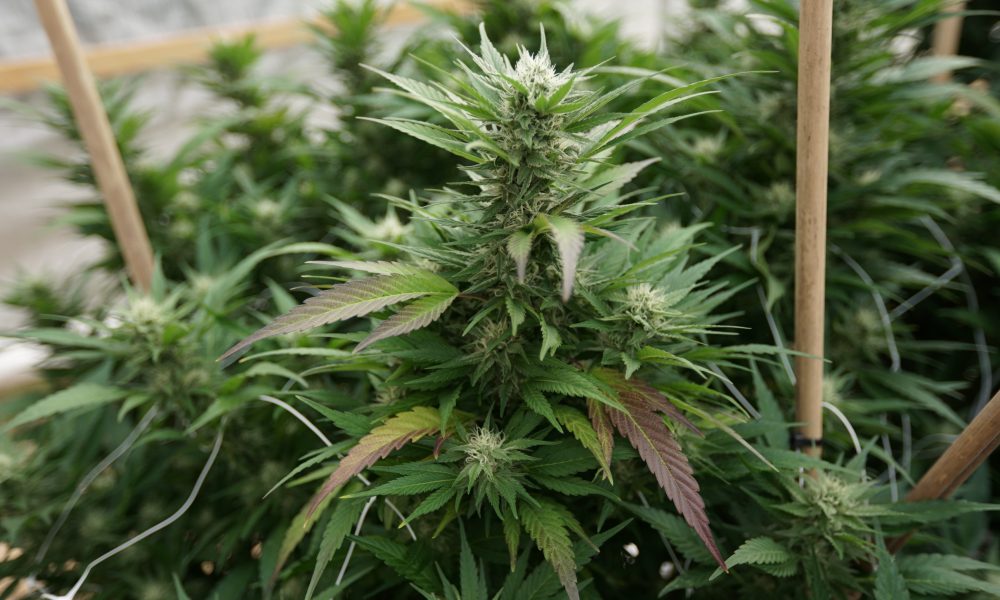“We must not let this unique opportunity slip away when both sides of the aisle are willing to address the challenges facing this industry.”
By Russell Rosendal, Salal Credit Union
Most people working in cannabis are well-versed in the numerous operational and financial hurdles this industry faces as a result of federal prohibition. But among the most challenging of these hurdles for state-legal cannabis businesses is not having access to essential financial services.
This situation has forced many legitimate businesses to operate in the shadows, while their employees are excluded from mainstream banking services. The passage of the Secure and Fair Enforcement Regulation Banking Act, commonly known as the SAFER Banking Act, would be a crucial step toward addressing these financial challenges.
Where Does The SAFER Banking Act Stand Currently?
The SAFER Banking Act has made significant gains thus far, but more must be done to get it over the finish line.
This past September, it successfully passed the Senate Banking Committee with a 14–9 vote. Now, it stands at a critical juncture where advocacy, citizen involvement and national lobbying efforts are paramount.
While individuals and organizations have been advocating for responsible federal policies—including banking and regulatory oversight—ever since legal state markets began to emerge, there is now a rare window of bipartisan support for the SAFER Act. Key senators have voiced their support, making this a pivotal moment to push for this legislation. Passage of the SAFER Act would be a landmark achievement in providing financial options and protections to state-sanctioned cannabis businesses and their employees.
Advocates, business owners and concerned citizens have the power to make a significant impact by engaging with their elected officials and expressing support for the SAFER Banking Act. We must not let this unique opportunity slip away when both sides of the aisle are willing to address the challenges facing this industry. It’s essential that constituents raise their voices and ensure their concerns are heard.
How Cannabis Banking Will Change If The SAFER Banking Act Passes?
The passage of the SAFER Banking Act would herald a new era for the cannabis industry, particularly in terms of access to financial services. Here’s a glimpse of the potential impacts:
- Less tension between federal and state law. Banking, insuring, lending and conducting financial transactions with cannabis businesses would no longer be in direct conflict with federal law. While non-enforcement policies have already provided some relief, the looming threat of federal intervention has always cast a shadow over the industry.
- Safe harbor for banking payments. Cannabis businesses would likely gain access to basic banking services that most other industries take for granted. This includes accepting credit cards and debit cards, managing accounts, issuing checks and facilitating electronic funds transfers.
- Expanded protection for insurers. The SAFER Banking Act provides protection to insurers operating both within and outside the cannabis industry. This means that insurers willing to engage with cannabis-related businesses would also enjoy certain protections.
- Mortgages and access to capital. Employees of state-legal cannabis businesses would be able to access mortgage loans far more readily, because their income would be treated like any other legal source of
income for the purposes of determining mortgage eligibility. - Access for hemp businesses. Hemp and CBD-focused businesses are frequently ensnared in regulatory uncertainties. These businesses would also gain from the SAFER Banking Act, which would make banking products and services more readily available to them.
- Updates to FinCEN guidance. The Financial Crimes Enforcement Network (FinCEN) guidance issued in 2014 would require updating within a year of the SAFER Banking Act’s passage. The technical changes to the language note how cannabis-related transactions should not be considered “proceeds from an unlawful activity,” which would impact areas such as reporting and compliance for cannabis businesses.
- Illicit market impact. As legitimate cannabis businesses find it easier to access banking services, they can operate more efficiently, which should lead to more competitive pricing and higher quality. This could, in turn, make the legal market even more attractive and cause the illicit market to lose its competitive pricing edge.
It’s important to note that while the SAFER Banking Act encourages a risk-based approach, it doesn’t mandate that financial institutions must conduct business with cannabis companies. Individual institutions maintain the discretion to accept or decline such clients. However, the risks of accepting cannabis clients would decrease substantially.
The implications of safe banking and regulatory reform also extend far beyond the balance sheets of businesses. These reforms would also enhance issues of public safety, transparency and the ability to operate like any other legitimate industry.
Let’s seize this chance to shape a safer and more competitive cannabis market for everyone involved.
Russell Rosendal is the CEO of Salal Credit Union. He previously served as vice president of the Finance, Planning and Analysis Group/Home Loans for Washington Mutual and was executive vice president/chief financial officer and corporate secretary at Foundation Bank, in Bellevue, Washington. He was also executive vice president/chief financial officer and corporate secretary at Cascade Bank, in Everett, Washington. Russell earned an MBA from City University of Seattle and a BA in economics from the University of Washington.
New York Posts Dozens Of Sample Marijuana Job Descriptions To Aid Businesses And Workers
Photo courtesy of Chris Wallis // Side Pocket Images.
Read the full article here









